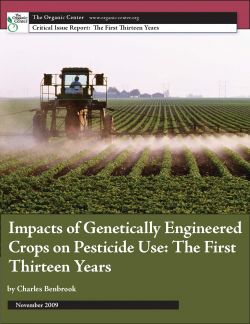By Carmel Wroth
AMUSE-BOUCHE: Local, of course
The pre-event reception to the Michael Pollan-John Mackey discussion drew quite a crowd.
Hungry (and penniless) graduate students rubbed shoulders with well-heeled foodies, including superstar chef Alice Waters of Chez Panisse, nutritionist and best-selling author Marion Nestle, and Bill Niman, co-founder of Niman Ranch meats.
Of course you’re wondering what there was to eat.
Guests munched on goat cheese fritata, artisanal salami, and crostini, decked with green olive tapenade, warm hedgehog mushroom spread with fresh grated romano, and duck liver pate.
All locally sourced, naturally!
Conversation buzzed—everyone was excited to see the two food luminaries talk. Or maybe they were just pleased they had scored tickets (people were soliciting them on Craig’s List before the event.)
Whole Foods employees had come from far and wide to see their boss.
“John Mackey is cool,” said Elizabeth Wade, a team leader at the Petaluma, California, store.
David Evans, Marin Sun Farms’ owner, who sells his grass-fed meat locally (and not in Whole Foods), said he hoped the Pollan-Mackey conversation would shed light on how “small farms can access a bigger market without sacrificing integrity.”
Yes, indeed, the question of the night.
FIRST COURSE: History Lesson
To start things off, John Mackey - co-founder and CEO of Whole Foods - gave the crowd of nearly 2000 people a 45-minute food history lesson, complete with colorful Powerpoint slides.
He walked us through the entire history of food procurement and production. Six discreet stages of food history from hunting and gathering to Whole Foods Market!
Okay, that’s not entirely fair. Mackey believes that a new era of food is emerging to replace industrial agriculture--what he calls ecological agriculture--and naturally it’s bigger than Whole Foods.
He seems to think his company is the heart of the movement (it may well be), and he clearly articulated a vision for a sustainable alternative to industrial food.
He also broke some news (as he seems to do every time he appears with Pollan). Whole Foods has established a $30 million venture capital fund to make equity investments in artisanal food companies. This presumably comes on top of a $10 million fund set up for farmers last year.
Secondly, the company is launching a “Whole Trade Guarantee” fo the company’s commitment to source certified ethically traded products.
How can you be cynical about this man?
SECOND COURSE: Smack-down Letdown
As the dialogue got under way, there was a rustling of expectation in the audience. The provocative debate was about to begin, right?
After all, these were the two men who disagreed so strongly about whether the organic food business was lapsing into industrialism that they conducted a heated, months-long online argument. (See our previous post for links on the debate)
In person, though, they were almost painfully gentle with one another. They sparred, a little, I guess, but it was more like couple's counseling than a duel.
For starters, there were admissions of mutual gratitude and admiration. Mackey had learned from Pollan. Pollan appreciated Mackey.
The denouement came when Pollan asked Mackey if he blamed the company’s recent stock devaluation on his less than flattering chapter on the Whole Foods. It went like this:
“Well you probably cost us about $2 billion,” said the natural foods tycoon. “Easy come, easy go.”
(Audience laughs)
“Seriously???” (Culinary poet laureate grimaces painfully).
Mackey described how a flurry of unflattering press followed the book, including frequent comparisons to Wal-Mart.
Pollan looked contrite.
Mackey melted: “Aw, I’m just pulling your chain a little bit, Michael!”
What are righteous eco-consumers to make of this not-so-spirited interchange? If you want to see a debate, as one audience member suggested, invite people who are really on opposing sides of an issue.
Pollan and Mackey originally did have their differences, but when Pollan came up with his eloquent critique, Mackey moved rapidly to turn Whole Foods' sustainable battleship in line with Pollan’s vision—or to emphasize the ways it already was already doing so (sourcing more local foods in stores and moving forward with supporting domestic grass-fed meat, for example).
Pollan, for his part, politely closed ranks with perhaps the most influential man in organic and natural food circles, which is, you'll recall, the alternative to 98 percent of the food supply.
Mackey had his own criticism of Pollan, saying “big organic” is not as big and bad as the author claimed.
“You exaggerated the extent of industrialization of organic,” he said, even adding his most contentious comment, “you’ve done some damage!”
Pollan said he “didn’t intend to demonize” big organic. Organic Coca-Cola would be fine by him. (Say what?)
Which leads us back to a fundamental question raised by the evening's discussion, can organic scale up without selling out? Is there a way to produce and distribute enough organic food to reach the vast majority of the population, or will organic food remain in its gilded 2 percent niche?
DESSERT: A challenge
With all these weighty issues on our minds, Mackey asked one last question.
“What is your contribution going to be? What are you going to do to support ecological agriculture?”
Other than shopping at Whole Foods and the farmers' market? We're still pondering that one.
(The Webcast of the event is archived here)




